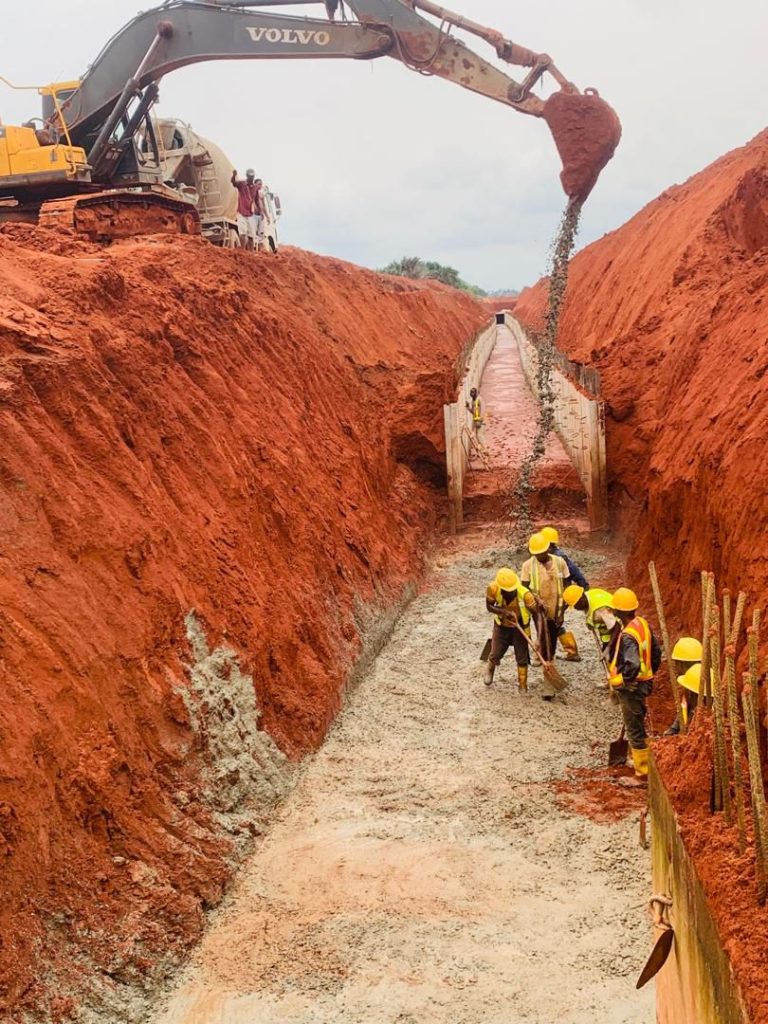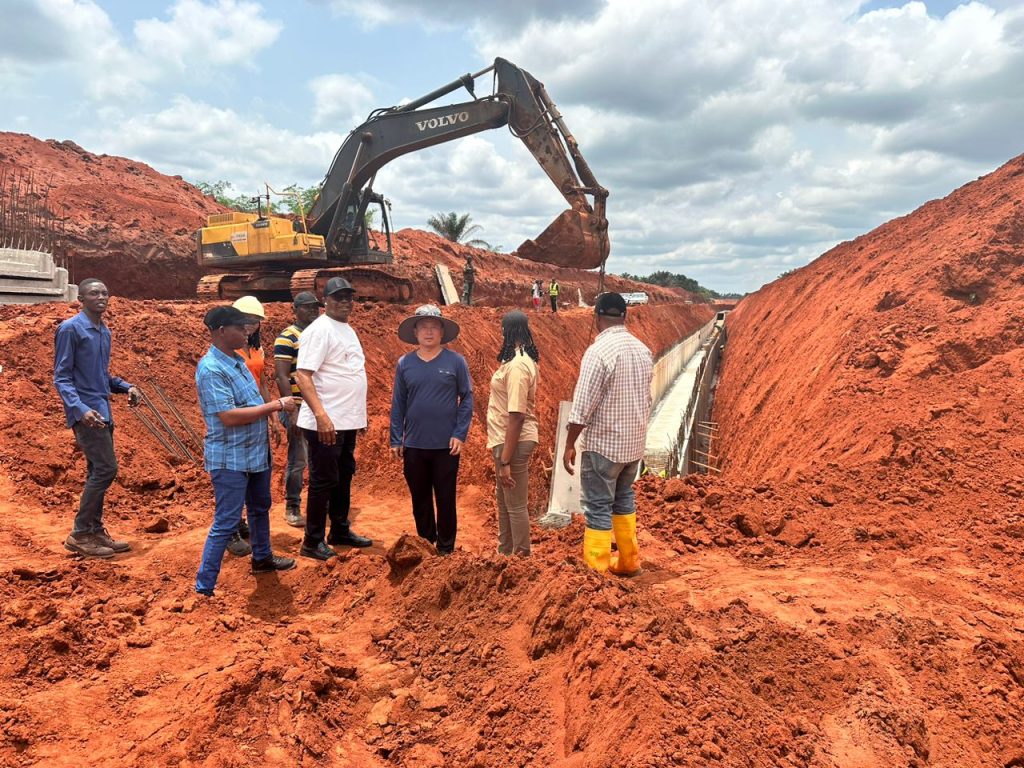
Addressing Nigeria’s Water Pollution Crisis: The Role of Storm Water Management
By John Cee Onwualu (FNSE, FNICE, FNIWE, P.E., R.ENG)
Understanding the Environmental Challenge
Water Pollution: A Major Crisis in Nigeria
Nigeria, the most populous country in Africa, is grappling with a severe environmental crisis – water pollution.
Despite its wealth of water resources, including rivers, lakes, and underground aquifers, the nation struggles to provide its citizens with clean and safe drinking water.
This crisis is exacerbated by poor storm water management practices in Nigerian cities.

The Role of Storm Water in Pollution
Storm water, the excess water accumulated during heavy rainfall, plays a crucial role in water pollution.
In urban areas, this water gathers pollutants such as trash, chemicals, and sediment as it flows through streets and other surfaces.
This contaminated storm water ultimately finds its way into water bodies, compromising water quality and posing a significant threat to public health.
Factors Contributing to Poor Storm Water Management
Rapid Urbanization and Infrastructure Challenges
The link between water pollution and inadequate stormwater management can be attributed to rapid urbanization and insufficient infrastructure development.
As urban populations grow, so does the demand for housing and infrastructure. Consequently, the construction of impermeable surfaces like roads and buildings impedes the natural absorption of stormwater, leading to rapid runoff and increased pollution.
Inadequate Drainage Systems
Most Nigerian cities lack adequate stormwater management systems. Existing drainage infrastructure is often outdated, poorly maintained, or nonexistent.
This deficiency exacerbates flooding, causing damage to property and exacerbating water pollution. During floods, sewage and other hazardous substances mix with stormwater, posing serious health risks.
Lack of Awareness and Enforcement
Another significant factor contributing to poor stormwater management is the lack of awareness and enforcement of environmental regulations.
Many industries and businesses in Nigeria lack proper waste management systems, resulting in the release of untreated wastewater into storm drains.
This further contaminates water sources and harms the environment and public health.
Consequences and Urgent Actions Needed
Far-Reaching Consequences
The consequences of poor stormwater management and water pollution are extensive. Contaminated water sources not only jeopardize clean drinking water, but also impact the livelihoods of communities dependent on fishing and agriculture.
Moreover, water pollution facilitates the spread of waterborne diseases, posing severe health risks, particularly to vulnerable populations.

Urgent Action Required
To address the nexus between water pollution and inadequate stormwater management, immediate action is imperative.
The government must invest in upgrading existing drainage systems and constructing new ones to manage stormwater effectively.
Strict enforcement of environmental regulations is necessary to ensure compliance with waste management practices.
In addition, public education campaigns are essential to foster responsible behaviour among citizens.
Conclusion: Collaborative Efforts for a Sustainable Future
In conclusion, the interconnection between water pollution and poor stormwater management poses a significant threat to Nigeria’s environment and public health.
Addressing this complex issue requires coordinated efforts from the government, industries, and citizens. Only through collective action can we safeguard clean and safe water for future generations.
References
Obeta, M. C., & Ugwu, J. N. (2019). Urbanization, storm water management, and water pollution: A case study of Enugu, Nigeria. Environmental Monitoring and Assessment, 191(12), 745.
Oyebande, L., Adelekan, B., & Adedeji, O. (2018). Storm water management challenges in Lagos, Nigeria: Implications for water quality and public health. Journal of Environmental Health Science and Engineering, 16(2), 111-120.
Ojekunle, Z. O., Taiwo, A. M., & Odukoya, A. M. (2017). Assessment of storm water quality in selected urban areas of Lagos State, Nigeria. Journal of Environmental Management, 186(Part 1), 120-128.
Obinaju, B. E., Ufodike, E. B. C., & Uchendu, U. C. (2016). Impact of urbanization on storm water quality in Awka, Anambra State, Nigeria. Journal of Environmental Protection, 7(6), 882-891.
Oyedele, D. J., & Olaniyi, S. B. (2015). Urbanization, storm water management, and water pollution: Challenges and solutions in Nigerian cities. International Journal of Environmental Science and Development, 6(11), 825-830.
Akoteyon, I. S., & Akomolafe, G. F. (2014). Storm water management practices in Nigeria: A review of challenges and prospects. International Journal of Environmental Science and Development, 5(1), 75-80.
Odiyo, J. O., & Makungo, R. (2013). Assessment of the impact of urbanization on water quality of selected South African rivers. Environmental Monitoring and Assessment, 185(6), 4793-4805.
Afolabi, A. O., Okonny, U., & Oluwatoyin, O. (2012). Storm water management practices in Ibadan, Nigeria: Challenges and prospects. International Journal of Science and Advanced Technology, 2(10), 66-71.
Ojolo, S. J., Ojolo, S. J., Oladele, I. O., & Afolalu, T. D. (2011). Urbanization and storm water management in Nigeria: Challenges and prospects. African Journal of Environmental Science and Technology, 5(5), 329-338.
Adewole, A. T., & Adesina, G. A. (2010). Storm water management in Ijebu-Ode, Nigeria: Challenges and possible solutions. Journal of Sustainable Development in Africa, 12(6), 111-125.